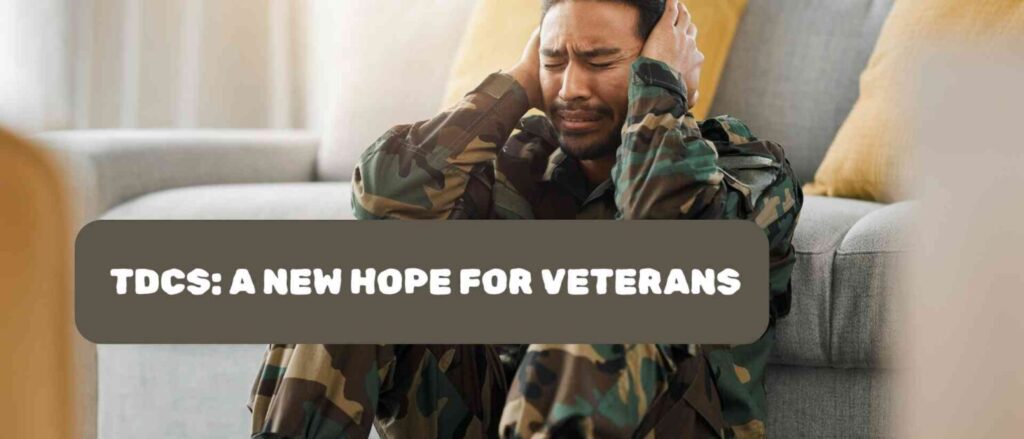
The mental health of veterans has been a concern that has demanded great attention in the last few decades. Several mental health challenges greatly influence service members. More than 16% of veterans suffer from at least two diagnoses that majorly involve depression and post-traumatic stress disorder (PTSD). The impact of these mental health issues among veterans occurs in the form of further self-harming behaviours such as suicidal thoughts, substance abuse and interpersonal violence. Without seeking intense intervention and possible treatment courses, healing and recovery from the effects following exposure to multiple combating events is not achievable.
Veterans and Mental Health Treatment Options
The manifestation of mental illnesses among veterans is also famous with the following names: “shell shock”, “soldier’s heart” and “combat fatigue”. The symptoms of depression and trauma usually resolve within one month if not severe. But flashbacks, emotional memories, avoidance anxiety and numbness remain persistent, impairing a person’s overall life functioning, nightmares, other sleep and sexual difficulties. The experience of mental health disturbance is not limited to these symptoms. However, veterans with PTSD treatment may continue relapsing and following up on treatment alternatives. Treatment options range from medication to psychotherapy.
As the causes of illnesses like depression and trauma are multidimensional the treatments must also exhibit multidimensional outcomes. However, medicines are temporary relief and block the receptors for some time. Long-term relief is expected during regular psychotherapy sessions. Few therapies make a difference in the daily lives of veterans and make their recurring symptoms more manageable. The only drawback of psychotherapeutic interventions is long-term engagement and excessive financial costs. There is a need to adopt a quick and easy way without any burden and with minimum side effects with maximum benefits.
Psychotherapeutic Interventions
The three most effective evidence-based treatment methods for the treatment of mental illnesses among veterans are dialectical behaviour therapy (DBT), acceptance and commitment therapy (ACT) and eye movement desensitization and reprocessing (EMDR).
DBT is a comprehensive program that is widely applied for psychiatric hospitalizations and healthcare systems designed for veterans. Patients with psychosis and psychotic symptoms are found to improve in 58% of the affected patients. The evaluation through assessment procedures has shown a difference within 6-8 weeks. This program takes a maximum of 12 weeks to prove its effectiveness as a promising treatment method for suicide attempts in depression and severe PTSD.

ACT is another evidence-based treatment available for veterans to help them deal with their depressive and traumatic symptoms. Maintaining engagement in these long-term treatments makes it difficult for people to stay motivated throughout the treatment. This serves as a barrier to the optimal output. There is no single diagnosis present in veterans to which ACT is best as a transdiagnostic treatment approach to decrease avoidant behaviours and unhealthy coping strategies. Reduction in experiential avoidance, cognitive fusion and psychological inflexibility is better facilitated with the main techniques of ACT known as cognitive defusion, psychological flexibility, mindfulness and so on.
EMDR is recommended as the treatment of veterans a gold standard because it is the most relevant concept based on removing traumatic images and negative emotional memory images that have been saved and strengthened with time in a set of split-second images containing distressing emotions and memories of the exposure to unfavourable and stressful circumstances. A visual stimulus is provided to the patients and in 4 sessions the trauma is likely to resolve with ease. Once the patients learn to distract and focus on visually moving stimuli, the thoughts, feelings and sensations related to trauma become settled to a great extent.
Transcranial Direct Current Stimulation (tDCS) For Veterans Mental Health
To highlight a better version of treatment alternatives, tDCS therapy for veterans is emerging with great speed. Recently, in 2023, a series of randomized control trials demonstrated the efficacy of this therapy for PTSD headaches and other mood disorders. The results provided clear data that illustrated a decline in the number of days when patients experienced headaches even though their severity level was quite reduced as compared to the initial rating. The scores of clinical symptoms as compared to other treatment methods were also significantly different.
It has been observed that tDCS for depression is also equally effective for veterans. Almost all stress-related conditions are covered with tDCS therapy. Acceptance of devices used for the mental health of veterans among caregivers is mandatory to enhance the support and confidence in the mental health treatment outcomes. The development and implementation of the tDCS approach is incomplete without adequate acknowledgement among users. Other than clinical context, workplace settings may also offer tDCS sessions for their personnel and assisting staff members. A group of subjects reported tremendous change in their health when participated in 5 five-session program of tDCS to boost positive attitude.
The experts suggest educating the general population about how tDCS works and benefits a person at different levels of their mental health diagnosis. It is useful to consider tDCS as a solution for mild to moderate and severe to extreme levels of psychological distress. Addressing the current barriers and challenges in seeking tDCS sessions for treatment in veterans is a wise step that professionals must encourage. The provision of care outside healthcare facilities is a potential option that allows flexible application of the tDCS technology without any limitations. Scientifically tDCS is a frequently used tool that compliments the critical elements of the health conditions that need constant improvement.
Interestingly. tDCS is travel-friendly and also favours home-based treatment within minutes. The investment in tDCS is one time and gains are lifetime. The contribution of tech services in giving insights into the field of mental healthcare is a huge service that aids military service providers to a great extent.
—
References:
Charvet, L., Harrison, A., Mangold, K., Moore, R. D., Guo, S., Zhang, J., Datta, A., & Androulakis, X. M. (2023). Remotely supervised at-home tDCS for veterans with persistent post-traumatic headache: a double-blind, sham-controlled randomized pilot clinical trial. Frontiers in Neurology, 14.
Depression. (2023). https://www.samhsa.gov/mental-health/depression
Hernandez‐Tejada, M. A., Cherry, K. E., Rauch, S. a. M., Acierno, R., Fries, G. R., Muzzy, W., Teng, E. J., Wangelin, B. C., & Ahn, H. (2022). Management of Chronic Pain and PTSD in Veterans with TDCS+Prolonged Exposure: a pilot study. Military Medicine, 188(11–12), 3316–3321.
Phalen, P., Grossmann, J., Bruder, T., Jeong, J. Y., Calmes, C., Mcgrath, K., Malouf, E. T., James, A., Romero, E. G., & Bennett, M. E. (2022). Description of a Dialectical Behavior Therapy program in a Veterans Affairs Health Care System. Evaluation and Program Planning, 92, 102098.
Phillips, M., Chase, T., Bautista, C. L., Tang, A., & Teng, E. J. (2020). Using acceptance and commitment therapy techniques to enhance treatment engagement in veterans with posttraumatic stress disorder. Bulletin of the Menninger Clinic, 84(3), 264–277.
Smits, F., De Kort, G. J., & Geuze, E. (2021). Acceptability of tDCS in treating stress-related mental health disorders: a mixed methods study among military patients and caregivers. BMC Psychiatry, 21(1).
VA.gov | Veterans Affairs. (n.d.).
Veteran and military mental health issues. (2024, January 1). PubMed.
